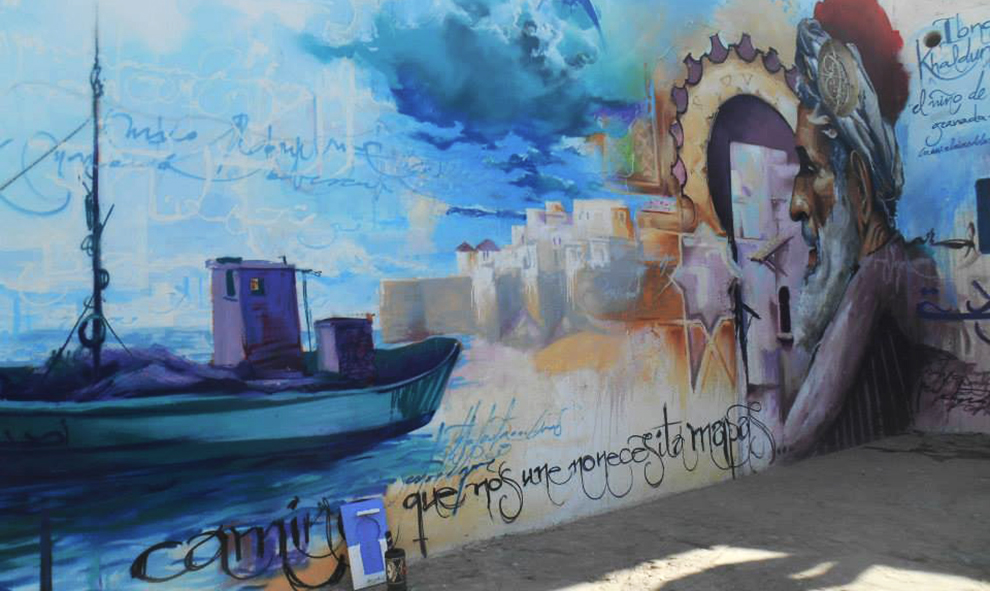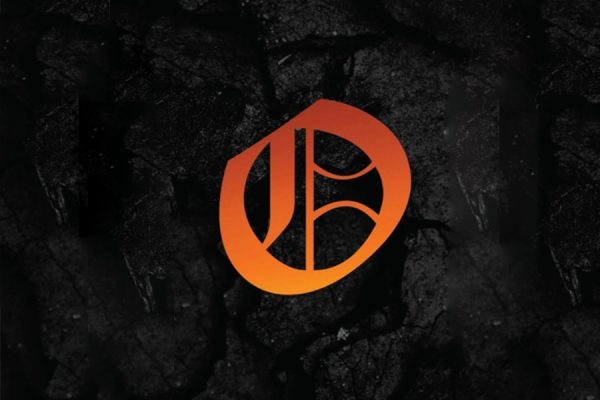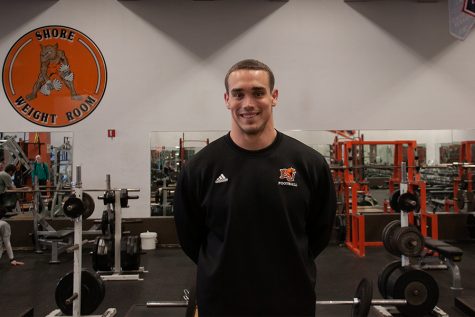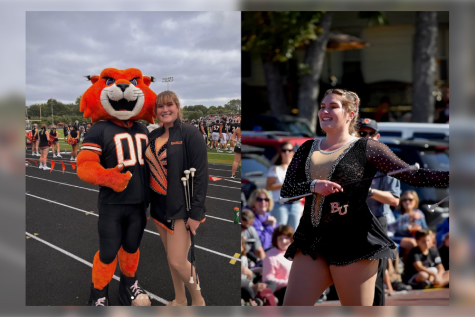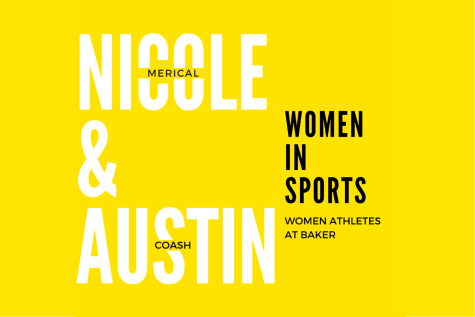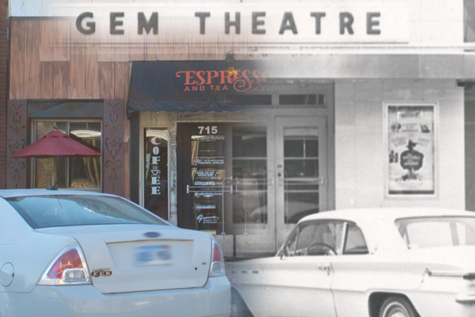Morocco Day 1: Tarifa – Tangier – Rabat
October 13, 2013
“Nothing ever becomes real till it is experienced – even a proverb is no proverb to you till your life has illustrated it.”
–John Keats
This quote was on the front of the information booklet each student in my program was given upon our arrival to Morocco. And after spending nearly 4 days in Morocco, I agree completely with it.
Katie Thurbon rides a camel on the coast of Africa.
The four-day Morocco excursion was an advertised part of the program that I chose to come to Spain. Therefore, I have known I would be going to Morocco for many months but nothing could have prepared me for what I encountered.
Day 1: Tarifa – Tangier – Rabat
All 25 of us left for Morocco on a Friday afternoon. We took a three hour bus ride from Granada to Tarifa, Spain, a port city. Once there, we met our Morocco Exchange program guides and checked into a hostel for the night. The next morning we would board a ferry to cross the Strait of Gibraltar and enter Morocco. First however, we had a free night in a new Spanish city and we weren’t about to spend it sitting in a hostel.
A chocolate hunt with three other girls from the program was to be the start of my nighttime adventure. After a thorough search of the city center yielded disappointing results, however, we decided to venture more toward the city limits and, inadvertently, we stumbled across the Atlantic Ocean. Immediately to our left we could spot the Rock of Gibraltar through the nighttime haze and the Mediterranean Sea beyond that (it took a few minutes of combined geography knowledge for the four of us to agree that we were indeed standing at the Atlantic, not the Mediterranean).
We ventured closer to the water’s edge rather cautiously because Verónica, our Spain program director, had warned us that many illegal immigrants attempted to cross the Strait on foggy nights before escaping farther into Northern Europe. Only a sailboat was in sight though so we made our way through the fine sand to the water’s frigid edge. We later learned that another group of students from our program had taken a midnight plunge into the ocean, but the temperature of the water was enough to deter me from even standing in the shallows for more than a few minutes.
Before returning to the hostel, I spent a few minutes staring across the water toward Africa. We had caught a glimpse of the Moroccan coast across the Strait earlier on our bus ride to Tarifa, and I was eager to see more of the continent that was completely foreign to me.
Once back at the hostel I enjoyed a long, hot shower because we had been warned that the bathroom facilities in Morocco wouldn’t be exactly what we were accustomed to. As if in confirmation of this, my señora had given me two extra rolls of toilet paper to take with me that morning and told me I would need it.
So the next morning we departed. Because there were so many of us, we split into two groups and each had its own program leader. My group’s guide was named Felicie. She was born in France but grew up most of her life in the United States. She was a Peace Corps volunteer in Benin, West Africa, and then again in Morocco from 2010 to 2012. She stayed in Morocco after her tour was over and married a Moroccan and has been living in a small village near the city of Marrakesh ever since. Additionally, there were two women training to be Morocco Exchange program guides who would tag along on our journey. Both women had done Peace Corps tours in Morocco, fallen in love with the country and decided to stay.
Travel group on the ferry to Morocco.
Riding the ferry to Africa was an interesting experience. Up to this point, the entirety of my boating experience consisted of riding in a small motor boat a family friend used to own on state lakes. I had always enjoyed being out on the lake, but being on something as massive as this ferry, which seemed to glide across the water, was exhilarating. Other than filling out the customs form to enter the country and waiting in line to have my passport stamped onboard, I spent the hour-long journey outside on deck looking for fish in the water, seagulls in the air and, of course, the African coast.
As Spain’s coast receded and Morocco’s drew nearer I began to spot, to my surprise, tall buildings. But that can’t be right, I thought, the Africa that is always shown on television and in movies doesn’t have tall buildings or paved streets with dozens of cars zooming by, right? Wrong. This was my first clue that the weekend ahead of me was going to be nothing like I expected. So, I decided right then and there to forget all my preconceived notions and go in with an open mind.
After docking in Tangier, Morocco, a major port city that has been occupied by Phoenicians, Carthaginians, Romans, Vandals, Spaniards, Portuguese and French, Felicie led us to our bus driver and we proceeded to a women’s center called DARNA. At DARNA, we met with three Moroccan students and had the chance to ask them questions about Morocco. All three students were open minded and willing to discuss touchy subjects such as Moroccans’ feelings towards their king and the problems with the education system (of which there were dozens).
Speaking with these students really opened my eyes to their struggles. Each of the students was university-educated but spoke of their frustrations with the corruption in the Moroccan educational system. Schooling is expensive, and graduating with good grades often depends more on knowing the right people than doing well on exams. After over half an hour of discussing the downfalls of the system I asked whether, after all the hardships they had endured and all the debt they now had with very few prospects of finding a job, they would recommend someone younger than them, a sibling perhaps, to follow in their footsteps and seek more education or to simply try and find a job to pay the bills after finishing with the mandatory schooling. Without hesitation each of them said they would make the same decision over again and recommend that anyone else do the same.
“Because we have to fight,” one of the women said. “We can’t give up and the only way to change the system is from the inside.”
I admire their determination. I couldn’t help thinking that many American students, faced with that much adversity in obtaining a college degree, simply wouldn’t bother going to college.
Moroccan mint tea — it tastes better than it looks.
As a side note, when we were having these discussions several nice women came around with traditional Moroccan tea and some cookies. Now, I’ve never been a big fan of tea but this stuff was delicious. Of course, it was so hot that I scalded my tongue on the first gulp and seared off about half my taste buds so I couldn’t be 100 percent sure it was as delicious as it seemed but the dozens of other cups of Moroccan tea we would be given during the whole trip would confirm that it was now my favorite drink in the whole world.
After the tea and discussions the students showed us around the women’s center. DARNA was created to empower women and teach them useful skills. We visited two separate sewing rooms where women were hard at work making clothes and rugs. If the women can’t afford to pay for the classes, they aren’t turned away because they able to sell the things they make in a shop at the center. There are also classes offered that teach literacy. We were shown one of the classrooms and one of the girls in our program showed off her Arabic knowledge by writing all our names in Arabic on the chalkboard. All the Moroccan students were very impressed.
Katie Thurbon stands on the rooftop of DARNA, a center created to empower women and teach them useful skills. In the background is a good view of Tangier, Morocco.
After visiting the rooftop of DARNA and getting a good view of Tangier we left for the small town of Asilah, about a 40 minute drive away. We went on a small tour of the city, which becomes an enormous gallery every year during a cultural festival in August when artists exhibit their work in the streets and on the walls of the town. Since Asilah is also a coastal city, we walked out on a rampart near to view the Atlantic and found a bunch of boys cliff diving. It was hot out and the water looked refreshing but I figured Felicie wouldn’t appreciate it if I flung myself off the rampart and into the water. Felicie kept a brisk schedule and probably would have made me sit soaking wet on the bus during the three-hour drive to Rabat.
The Atlantic coast of Asilah, Morocco.
So, hot and dry, we got back on the bus to head for Rabat. During the drive I perused the information booklet we had been given and found some interesting pieces of cultural advice about Morocco. My favorite “Do” in Morocco was “Have a second cup of tea.” My favorite “Don’t” was “Wait for your turn in line (there is no line!).”
After reading for a few minutes I (along with every single other student on the bus) fell asleep only to be awakened an hour later by Felicie.
“Wake up everyone, we’re going to go ride camels,” she said. I have to say that’s probably the best way I’ve ever been awakened.
We had arrived at a beach. There were families there with their children and, looking slightly out of place to us Americans, about 10 camels lounging in the sand.
As we approached, I noticed that all of the camels looked distinctly proud. They held their heads up into the air, displaying more dignity than I’ve ever seen in any other animal. I felt a few moments of shame for turning this living, breathing creature into a play-thing but then the excitement won over and I was the first to volunteer to saddle up. The men with the camels forced them to bend their legs and lie down in the sand so we could get on them, and then with a large forward lurch the camel would pick up its back two legs and then finally stand up on its front two; I had to clutch at the ropes on the front and back of the saddle in order to not be bucked off.
After everyone was saddled up we began our walk up and down the beach. At one point, my camel seemed to get scared by something and broke into an abrupt run along with the camel next to me. The boy leading my camel quickly calmed it down, but for a few seconds I thought I was about to be riding off into the Moroccan sunset on camelback, and I wasn’t displeased with the idea. All too soon, though, the ride was over and I again grasped the ropes firmly while my camel see-sawed its way down to the ground. We thanked the camel drivers with our new snippets of knowledge of Arabic and made our way back to the bus to continue the drive to Rabat.
Rabat, also located on the Atlantic Ocean, is the capital of the Kingdom of Morocco, and we would be spending two nights there in the homes of Moroccan families. When we arrived, we all went to the home of one of the host families and were served more tea (heck yeah) while Felicie gave each of us information on our host families and we waited for them to come pick us up. I was going to be staying with the Almansouri Fihri family along with two other girls from the program: Katie C. and Amelia.
A girl about our age came to pick us up and take us to what would be our house for the next two days. She spoke very good English and was eager to make us comfortable in her home. Her name was Bezmah, and she informed us that we wouldn’t be meeting her mother because she was away taking care of her sick father, but she was so accommodating that, despite her young age, I didn’t doubt for a second that we were in good hands.
When we got to the house, we met two of her three younger sisters and her younger brother. With each one we did the customary cheek kisses. During the next two days we spotted Bezmah’s father many times, but were never formally introduced to him. Felicie forewarned us that many of the fathers might act this way, especially if we were women, but to not be offended by it.
By this time it was past 8 p.m., but it wasn’t dinner time yet. Like the Spaniards, Moroccans apparently eat dinner late at night. So to pass the time Bezmah walked with us around Rabat for a few hours. One of her friends who turned out to be rather eccentric showed us around the bustling markets and helped me figure out the Moroccan money, dirhams, to buy some ice cream.
I found Rabat to be a mixture of old-fashioned outdoor markets and modern retail stores, and I liked it. There were as many cars honking to each other on the roads as there were people calling to each other on the sidewalk. The city had some modern architecture but was mostly dominated by beautiful stone buildings. Katie C. pointed out that there didn’t seem to be two doors alike in the whole city. Every door was unique and often intricate. Even though we were in Africa in a country whose language I did not speak, I already felt very at home.
Our progress around the city was constantly being slowed by Bezmah being stopped by men who wanted to talk to her. At first I thought she must know these men, but Bezmah told us that she didn’t, that men regularly would come up to women on the street and would sometimes even follow you all the home. Bezmah said not to worry, though, as tourists we should be left alone, and if a man did do something to us we didn’t like we just needed to turn and say a phrase in Arabic that translates to, “Go to your mother!” Apparently this would be enough to shame the man and get him to leave us alone.
After finally returning home, I fell asleep waiting for dinner ,which we didn’t have until after 11 p.m. When Bezmah woke me, though, it was to a delicious meal. Every meal in Morocco is shared. No one gets an individual plate. The food is served on one platter and everyone eats from his or her own imaginary triangle of food. Moreover, utensils are also seldom used in Morocco. Instead each person has pieces of bread that they use as pincers to pick up the food from the communal dish. At first I found this practice to be strange and slightly unsanitary but I came to enjoy the camaraderie of it. I was also nervous about liking Moroccan food. I’d never been an adventurous eater, but I was pleasantly surprised to find that everything I’d be served throughout my time in Morocco was much to my liking.
Almost immediately after dinner I fell asleep. Bezmah made quite sure we had adequate blankets and pillows, but I could have slept on the street outside without any problem. And so it was that my first day in Morocco came to a close.



